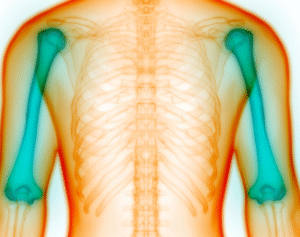Decoding Fibromyalgia Weakness: The Unseen Burden Behind Chronic Fatigue
Understanding the Nature of Fibromyalgia Weakness
Fibromyalgia is a complex and chronic health condition that affects the musculoskeletal system, causing widespread pain, tenderness, and a variety of other symptoms. Among these, a commonly reported yet often misunderstood symptom is weakness. When people speak about fibromyalgia weakness, they are referring to a persistent feeling of reduced physical strength, energy depletion, and muscular exhaustion that is not proportional to activity levels. It is different from general tiredness and is often described as a deep, pervasive sense of physical debilitation.
This weakness can make routine tasks feel overwhelming, leading individuals to feel as though their limbs are heavy or unresponsive. Importantly, it is not caused by muscle degeneration or nerve damage in the traditional sense but rather results from a combination of factors inherent in the disorder’s complex pathology.
The Difference Between Fibromyalgia Weakness and Fatigue
Though they often occur together, weakness and fatigue in fibromyalgia are not the same. Fatigue refers to a lack of energy or mental tiredness, while weakness is a more physical sensation of reduced strength. For someone with fibromyalgia, the body may feel drained and incapable of performing physical tasks, even after minimal effort. This distinction is crucial, as managing each symptom requires a different approach.
Fibromyalgia weakness is unpredictable and can vary in intensity from day to day. Some days, a person may manage light activities with minimal discomfort, while on other days, even standing or lifting light objects may become a challenge.
What Causes Weakness in Fibromyalgia?
The weakness experienced in fibromyalgia is multifactorial. Several interrelated elements contribute to this symptom:
- Chronic Pain and Muscle Tension: Constant pain can cause individuals to use muscles less frequently, leading to a deconditioned state. This contributes to the feeling of weakness and reduces endurance.
- Poor Sleep Quality: Non-restorative sleep is a hallmark of fibromyalgia. Lack of deep sleep disrupts the body’s ability to recover and repair muscles, leaving individuals feeling physically drained.
- Nervous System Dysregulation: Fibromyalgia is believed to involve abnormal processing of pain signals in the central nervous system. This dysfunction may alter the perception of strength and stamina, leading to sensations of weakness.
- Inflammatory Responses and Hormonal Imbalance: Subtle changes in cytokines and cortisol levels might indirectly influence muscle function and energy metabolism, contributing to feelings of weakness.
- Psychological Stress and Depression: Emotional stress, anxiety, and depression, which are common among those with fibromyalgia, can exacerbate physical symptoms including weakness and a sense of incapacity.
How Fibromyalgia Weakness Affects Daily Life
The impact of fibromyalgia weakness extends far beyond muscle fatigue. It can limit mobility, reduce productivity, and interfere with basic tasks such as cooking, cleaning, or walking short distances. Many individuals report difficulty maintaining a job or participating in social activities due to the unpredictability and severity of their weakness. This can further lead to isolation, frustration, and a diminished quality of life.
Moreover, because fibromyalgia does not cause visible disability, others may struggle to understand the challenges associated with this condition. This lack of external validation can increase emotional distress, which in turn worsens symptoms in a cyclic manner.
Managing Fibromyalgia Weakness Effectively
Although fibromyalgia cannot be cured, weakness can be managed through a comprehensive approach involving both medical and lifestyle strategies.
Exercise and Physical Therapy
Low-impact physical activity, such as walking, swimming, or yoga, can help maintain muscle strength without overexerting the body. Physical therapy programs designed specifically for fibromyalgia can assist in improving muscle function gradually and safely.
Sleep Hygiene
Improving sleep quality through consistent routines, relaxation techniques, and potentially sleep aids can help the body recover more effectively and reduce physical depletion.
Pain Management
Medications like anticonvulsants, antidepressants, and over-the-counter pain relievers may help reduce pain, thereby encouraging more movement and reducing the cycle of weakness due to disuse.
Stress Reduction Techniques
Mindfulness, cognitive-behavioral therapy, and relaxation exercises can reduce stress, which often plays a significant role in worsening fibromyalgia symptoms.
Balanced Nutrition
Eating a well-rounded diet rich in anti-inflammatory foods may help support energy levels and muscle health. Some individuals benefit from dietary supplements, though these should be discussed with a healthcare provider.
Conclusion
Fibromyalgia weakness is a real, life-altering symptom that goes beyond simple tiredness. It involves a complex interplay between chronic pain, neurological dysfunction, and psychological stress. Recognizing and understanding this unique form of weakness is crucial to effective symptom management and improving overall quality of life. Through a combination of medical support, lifestyle changes, and emotional care, it is possible to navigate fibromyalgia with greater resilience and control.
Frequently Asked Questions
1. Is fibromyalgia weakness the same as muscle fatigue?
No, fibromyalgia weakness refers to a persistent feeling of reduced physical strength and endurance, whereas muscle fatigue generally results from exertion and resolves with rest.
2. Can exercise help reduce fibromyalgia weakness?
Yes, when done appropriately, low-impact exercises can help strengthen muscles and improve stamina without worsening symptoms.
3. How does sleep affect weakness in fibromyalgia?
Poor sleep quality limits the body’s ability to repair itself, contributing to increased sensations of physical exhaustion and weakness.
4. Is fibromyalgia weakness constant?
It can vary significantly from day to day. Some individuals may feel strong one day and experience extreme weakness the next.
5. What can worsen fibromyalgia-related weakness?
Stress, lack of movement, poor sleep, and overexertion are common triggers that can worsen this symptom.6. Should I see a doctor about fibromyalgia weakness?
Yes, discussing symptoms with a healthcare professional can help ensure an accurate diagnosis and the development of a personalized management plan.



